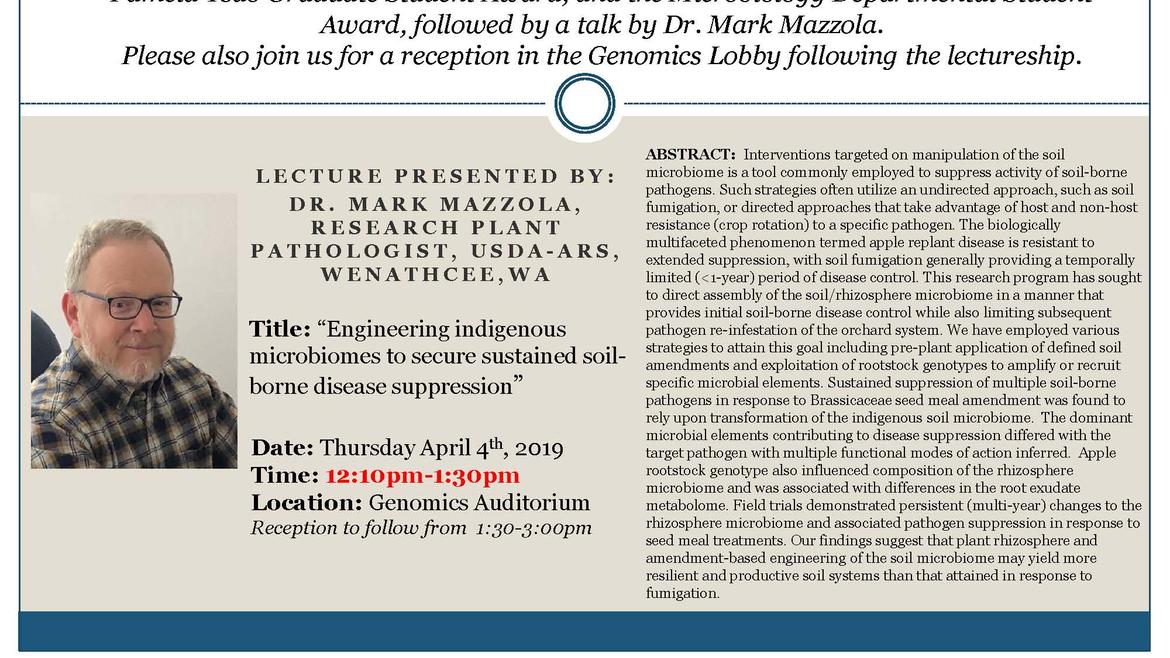Invited Lecturer- Dr. Mark Mazzola, USDA-ARS, Wenatchee WA

Microbiology and Plant Pathology Awards Ceremony and Graduate Student Invited Lectureship
Lectureship presented by:
Dr. Mark Mazzola, Research Plant Pathologist, USDA-ARS Wenatchee, WA
Lecture Title: "Engineering indigenous microbiomes to secure sustained soil-borne disease suppression"
Abstract: Interventions targeted on manipulation of the soil microbiome is a tool commonly employed to suppress activity of soil-borne pathogens. Such strategies often utilize an undirected approach, such as soil fumigation, or directed approaches that take advantage of host and non-host resistance (crop rotation) to a specific pathogen. The biologically multifaceted phenomenon termed apple replant disease is resistant to extended suppression, with soil fumigation generally providing a temporally limited (<1-year) period of disease control. This research program has sought to direct assembly of the soil/rhizosphere microbiome in a manner that provides initial soil-borne disease control while also limiting subsequent pathogen re-infestation of the orchard system. We have employed various strategies to attain this goal including pre-plant application of defined soil amendments and exploitation of rootstock genotypes to amplify or recruit specific microbial elements. Sustained suppression of multiple soil-borne pathogens in response to Brassicaceae seed meal amendment was found to rely upon transformation of the indigenous soil microbiome. The dominant microbial elements contributing to disease suppression differed with the target pathogen with multiple functional modes of action inferred. Apple rootstock genotype also influenced composition of the rhizosphere microbiome and was associated with differences in the root exudate metabolome. Field trials demonstrated persistent (multi-year) changes to the rhizosphere microbiome and associated pathogen suppression in response to seed meal treatments. Our findings suggest that plant rhizosphere and amendment-based engineering of the soil microbiome may yield more resilient and productive soil systems than that attained in response to fumigation.
If you plant to attend this event RSVP to Margarita Flores, at margarita.flores@ucr.edu